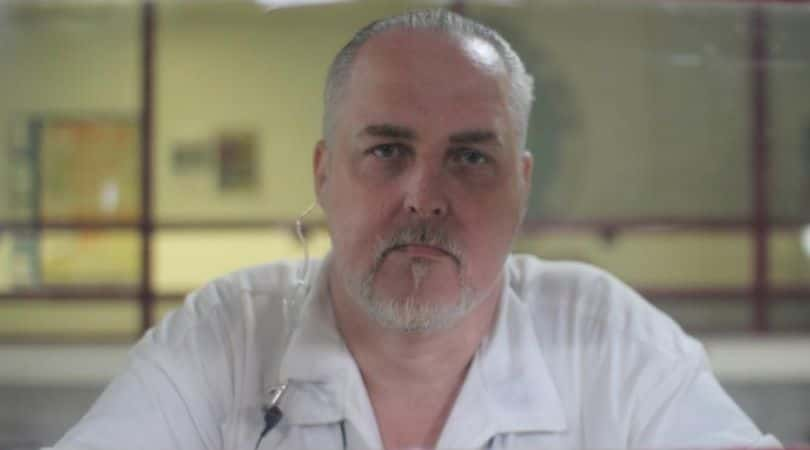'I Am A Killer: Released': Dale Sigler says he killed John Zeltner for a different reason, can he be believed?

Netflix's latest true crime offering, 'I Am A Killer: Released' explores the story of Dale Wayne Sigler, one of only seven people who were on death row in Texas to have their sentencing changed. Sigler was sentenced to death row in 1991 on the killing of John William Zeltner Jr, a sandwich shop clerk. According to court documents, Sigler shot Zeltner multiple times, emptying the gun a friend provided him with, and then stealing approximately $450 from the cash register at the Subway shop.
In 1993, Texas changed its laws regarding jury selection. Sigler’s team successfully argued that this invalidated his sentence, which was changed to life imprisonment. He would be eligible for parole in 30 years. 'I Am A Killer: Released' follows Sigler's steps to freedom as he is released on parole. During the three-episode series, Sigler speaks of a different motive than to what was actually given at the time of the murder, which took place in April 1990, when Sigler was just 21 years old -- Zeltner was a few weeks shy of his 31st birthday.
At the time, it was believed that Sigler committed the murder because he was desperate for money and a friend at the time told Sigler details about the shop's operations and layout. Sigler and his friends were "drinking beer, whiskey, smoking marijuana, smoking speed, and doing lines of speed," during this discussion, according to court documents. Sigler went to the Subway shop later that night and shot Zeltner six times in the chest and twice in the back of his head. In the days following, he reportedly boasted about committing the murder. At the time, Sigler confessed to the murder and that it came as a result of aggravated robbery.
However, in 'I Am A Killer: Released', Sigler says he had a different motive to commit the murder. It was already known that Sigler and Zeltner knew each other. In the docuseries, Sigler says that he and Zeltner were friends and that he would often go over to Zeltner's house to shower and sleep. We also learn in the course of the docuseries that Sigler was molested when he was 10 years old, something he says he opened up about to Zeltner, in addition to learning that Zeltner was openly gay at a time when it was incredibly dangerous to be so due to the persecution faced by the LGBTQ community. Sigler says that once when he was at Zeltner's house and napping, he woke up to find Zeltner on top of him. When Sigler reportedly refused to engage with Zeltner, the latter allegedly tried to blackmail Sigler into a "homosexual relationship," a phrase that Sigler uses repeatedly in the same arrangement of words multiple times.

At this point, the viewer might begin to wonder whether Sigler is really telling the truth, after all, Zeltner has been dead for 30 years and cannot corroborate the story. Is this really a story of redemption as one of Sigler's newfound acquaintances say, or is Sigler just trying to shift the blame onto Zeltner and paint himself the victim instead? This is unclear and perhaps will leave the viewer with a feeling of dissatisfaction.
However, Tommy Lenoir, the investigating detective on the case, does not buy into Sigler's story. Lenoir says he has concerns with "society being exposed to that type of irrational thought," should Sigler think he was justified in doing what he did. Lenoir also wonders why the information was not presented to the jury at the time of the trial -- Sigler tells the camera that his attorneys at the time laughed at him and called him an "idiot" when he did so, causing him to keep the information to himself.
Viewers might also begin to wonder if Sigler is homophobic -- he reiterates the fact that Zeltner was gay and tried to "blackmail [him] into a homosexual relationship" to whomever he is speaking to. As such, the interviewer does ask him whether he accepts gay people or whether he is homophobic. Sigler answers that he is not, however, follows it up with saying that he does not "believe in" homosexuality and that it is an "abomination to God."
Sigler's changed motive does not change the terms of his sentencing or of his parole and while Sigler's new statements may raise plenty of questions, Sigler is still a man free to be out and about in Texas on parole, and Zeltner is still gone -- meaning that whether Sigler's statements are true or not, the viewer would not get a definitive answer on what really happened.
'I Am A Killer: Released' is now streaming on Netflix.










